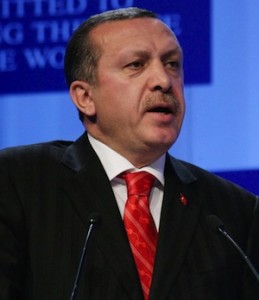Israelis buying a Japanese car in Tel Aviv might be surprised to learn that the car was actually built in Turkey. Tourists buying dried figs in Israel’s Machane Yehuda market probably don’t know that the figs might also be imported.
These are just two of the examples of the burgeoning trade between Israel and Turkey, trade that has more than doubled in the past five years, according to the Turkish Statistics Institute, and confirmed by Israeli officials, to $5.6 billion. About half of that is exports from Israel to Turkey, and the other half, Turkish goods, like the cars, coming to Israel.

“The economies of Turkey and Israel complement each other and the trade ties are flourishing,” Israeli foreign ministry spokesman Emmanuel Nachshon told this reporter. “That’s the good news. Unfortunately, the political ties are not as good, and this is a consequence of the harsh attack by the Turkish leadership against Israel.”
Ties between Israel and Turkey have foundered since Israeli naval commandos killed 10 Turkish activists on a ship that was trying to break Israel’s blockade of the Gaza Strip. Three years later, U.S. President Barack Obama brokered a telephone apology from Israeli Prime Minister Binyamin Netanyahu for the deaths of the 10 Turkish citizens, but relations have not returned to normal.
Israel and Turkey do not currently have ambassadors in each other’s countries, but do have lower-level diplomatic representatives. Turkish Prime Minister Recep Tayyip Erdogan has consistently made anti-Israel comments, including last month, commenting on Netanyahu’s trip to Paris after the killings at Charlie Hebdo and the kosher supermarket. Referring to last summer’s fighting between Israel and Hamas in the Gaza Strip, Erdogan said Netanyahu must “give an account for the children, women you massacred.”
In response, Israel’s Foreign Minister Avigdor Lieberman called Erodan an “antisemitic neighborhood bully.”
That type of Turkish rhetoric has been stepped up in advance of the June 2015 election for 550 new members of the Grand National Assembly, the country’s parliament.
“We’ve repeatedly seen that whenever there is an election campaign there is an increase in anti-Israel rhetoric,” a senior Israeli official told this reporter on condition of anonymity. “It’s almost part of the electoral campaign and the more anti-Israel you are, the more popular you are. That is something we can’t accept.”
Yet both Israel and Turkey seem happy to distinguish between their political and economic connections.
Read more at themedialine.org.
